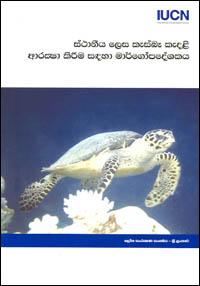

Related content
Comunidades fortalecen la gestión sostenible de la tierra, el bosque y la biodiversidad en la Cadena Volcánica de Guatemala
El Proyecto Promoviendo Territorios Sostenibles y Resilientes en Paisajes de la Cadena Volcánica Central en Guatemala busca integrar la conservación de la biodiversidad y la gestión sostenible de la tierra y los bosques en paisajes productivos, generando beneficios locales y ambientales globales. Mediante un enfoque participativo, ha fortalecido capacidades técnicas y organizativas de pequeños productores, promoviendo prácticas sostenibles como abonos orgánicos, reforestación y producción orgánica. También ha impulsado la participación activa de mujeres en procesos organizativos y de comercialización, mejorando sus medios de vida. Hasta la fecha, ha beneficiado a 64,450 personas (31,715 hombres y 32,733 mujeres), con 216 acuerdos voluntarios que gestionan 19,802.24 ha con herramientas de manejo del paisaje y establecen conectividad en 59,265.41 ha, entre sistemas agrícolas/forestales y áreas protegidas.
The global status of sharks, rays, and chimaeras
In the 20 years since the IUCN SSC Shark Specialist Group’s first status report (2005), much has changed for sharks, rays and chimaeras. This report updates our understanding, and the scope of information reflects the scale of these two decades of change. The breadth of research topics has expanded, mirroring the inclusion of a greater diversity of species, and attention is being trained on the emerging threats and the accelerating global changes to aquatic ecosystems. The 2005 report heralded a sea change for sharks, rays and chimaeras, whose historical obscurity in policy, conservation and fisheries management was a serious concern. In this report, the increased focus that was called for is now apparent in the scale of work happening across the planet.
Diretrizes para o manejo de organismos vivos confiscados
O comércio ilegal de animais silvestres aumentou dramaticamente na última década; no entanto, os esforços de fiscalização destinados a mitigar essa ameaça também o fizeram. O sucesso na aplicação da lei frequentemente envolve a apreensão e o confisco de espécies selvagens de diversos taxa de plantas, animais e fungos. Essas apreensões podem incluir partes de espécimes não vivos na forma de artefatos, alimentos ou produtos medicinais, mas, em muitos casos, envolvem indivíduos vivos. Com confiscos cada vez mais frequentes e muitas vezes um grande número de indivíduos envolvidos, é importante seguir as melhores práticas na abordagem de manejo para maximizar o papel na conservação e o bem-estar individual dessas plantas e animais. Este documento tem como objetivo fornecer orientação sobre essas melhores práticas.
Regeneration of Mangroves and Mobilization of Local Populations, with a Particular Focus on Women and Indigenous Communities, in the Conservation of Ecosystems in the Lokoundjé District (Fifinda)
The Foundation for Environment and Development in Cameroon (FEDEC) implemented a project titled ‘Mangrove Regeneration and Mobilization of Local Communities, Particularly Women and Indigenous Groups, in Ecosystem Conservation in the Lokoundjé District (Fifinda),’ funded by GEF Small Grant from the United Nations Development Program. This initiative aimed to restore 4 hectares of degraded mangrove areas through the replanting of 6,000 mangrove seedlings and fostered community engagement, particularly among the Bakola/Bagyeli indigenous communities, in agroforestry activities. The project also introduced improved fish smoking ovens, reducing deforestation and enhancing local economies. Community education efforts, including the distribution of educational materials and radio broadcasts, raised awareness of mangrove conservation. The combined efforts have not only regenerated vital ecosystems but also empowered local populations with sustainable livelihoods and conservation techniques.
Lignes directrices pour de meilleures pratiques en matière de prévention et d'atténuation des conflits entre humains et grands singes
Un des défis auxquels la conservation des grands singes doit faire face est linteraction croissante entre les humains et les grands singes, et les conflits que cela génère. Il est impératif de développer une compréhension détaillée des situations de conflit actuelles et potentielles et leurs impacts présents et futurs à la fois sur les grands singes et les humains. Cela nécessitera lintégration de données qualitatives et quantitatives sur les aspects multiples des comportements des humains et des grands singes et de leur écologie. Il sagira également de bien comprendre comment les populations locales perçoivent cette situation. Une telle compréhension peut ensuite être utilisée pour développer des stratégies de gestion efficaces et adaptées localement pour prévenir ou diminuer les conflits entre humains et grands singes, tout en respectant à la fois les objectifs de la conservation et les contextes socio-économiques et culturels. Ces lignes directrices décrivent une séquence détapes logiques qui devraient être prises en compte avant toute intervention dans les conflits entre humains et grands singes ; elles proposent également des contre-mesures possibles à utiliser dans la gestion des conflits entre humains et grands singes.
Lignes directrices pour de meilleures pratiques en matière d'inventaire et de suivi des populations de grands singes
Les menaces conjuguées auxquelles font actuellement face les derniers grands singes appellent des mesures de conservation immédiates à tous les niveaux — des initiatives portant sur des sites particuliers aux conventions et plans d’action internationaux, en passant par les stratégies nationales et régionales. Le présent document décrit les approches actuelles en matière d’étude et de suivi des grands singes pour les biologistes de terrain, les administrateurs daires protégées, les services gouvernementaux responsables de la faune et la communauté de la conservation dans son ensemble. Il contient des informations supplémentaires précises sur la conception d’une étude, les méthodes de terrain, les approches analytiques et les considérations pratiques telles que la logistique, les finances et l’établissement de rapports normalisés.
Using the IUCN red list criteria at the national level : a regional consultative workshop for South and Southeast Asia… : proceedings and recommendations
A regional workshop was held to develop a shared understanding of the IUCN global Red List criteria, threat categories and the process of listing species according to the threat of extinction with an emphasis on lessons learned, key constraints and priority needs. The report presents country status reports from Cambodia, India, Indonesia, Lao PDR, Malaysia, Nepal, Pakistan, Philippines, Sri Lanka, Thailand and Vietnam, plus conclusions and recommendations.

